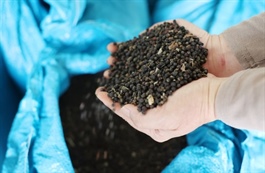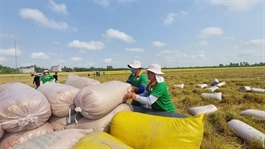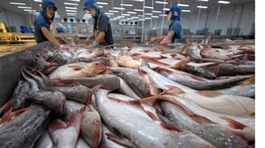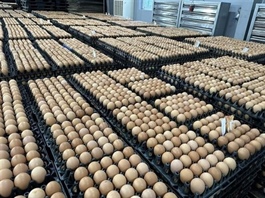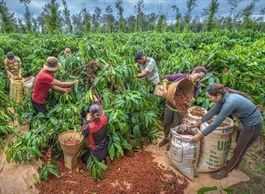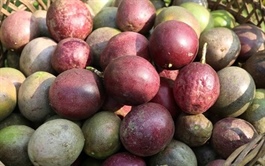Vietnam’s rice exports deliver strong yield
Vietnam’s rice exports deliver strong yield
Vietnam has strengthened its position as a global rice exporter as surging prices and volumes propel the country towards a projected record-breaking eight million tonnes of exports in 2024.

According to the Ministry of Agriculture and Rural Development (MARD), rice exports have reached nearly $3.85 billion so far this year, a 21.7 per cent increase on-year. Exports hit 6.16 million tonnes, up almost 6 per cent. The average export price during this period stood at $542 per tonne, an 11.5 per cent rise.
The Vietnam Food Association attributed the surge in prices to the global food supply shortage, with cultivated areas in many countries shrinking due to weather and climate impacts.
India's ongoing rice export ban is also cited as a contributing factor. Domestic rice prices have seen steady growth as businesses ramp up purchases to fulfill export orders in the final months of the year.
According to VNA, Nguyen Nhu Cuong, director of the Department of Crop Production under the MARD, has forecast demand will remain high for rice imports from Vietnam's traditional customers such as the Philippines, Indonesia, Ghana, Malaysia, and Singapore for the rest of 2024 and beyond, according to vtcnews.vn.
Vietnamese rice exporters are expanding into new markets including the Middle East, Africa, South America, Japan, and South Korea. Consequently, the MARD predicts domestic rice production will reach approximately 43.4 million tonnes this year, with about eight million available for export.
Cuong said that the rice industry would meet the 2024 export targets and adequately address the country's food security needs.
"Supply constraints in some rice-exporting countries, coupled with Vietnam's improving rice quality meeting the demanding global market needs, have bolstered our position. Additionally, proactive negotiations by our businesses have yielded positive results with partners, leading to increased export volumes and stable prices for Vietnamese rice," Cuong said.
The Philippines' tax reduction policy is expected to boost rice exports, while supply uncertainties in competitor countries create significant opportunities for Vietnamese rice to penetrate deeper into the global market.
Cao Van Phong, CEO of Joint Venture Company for Rice Production, Processing, and Export, emphasised that Vietnam must continue to focus on enhancing product quality and improving the supply chain to maintain its position in the international market.
"We need to ensure that Vietnamese rice meets the required quantity and guarantees quality, food safety, and compliance with the stringent regulations of importing markets," Phong said.
Pham Van Thinh, chairman of Thuan Minh Import-Export JSC said, "The current high rice prices reflect the substantial demand from importing markets and the results of product quality improvements following Vietnam's rice value enhancement strategy. With export contracts already signed for the coming months, there's an opportunity to increase rice export volumes to levels higher than in previous years."
Vietnam exported 8.1 million tonnes of rice last year, a 36.6 per cent increase on-year, and the highest level in 16 years.
Nguyen Hong Dien, Minister of Industry and Trade said, "From being a food-importing country, Vietnam has achieved self-sufficiency in supply, balanced food resources, ensured national food security, and simultaneously become one of the few powerhouses in the exportation of rice."
Vietnam is the world's third-largest rice exporter, following India and Thailand.






